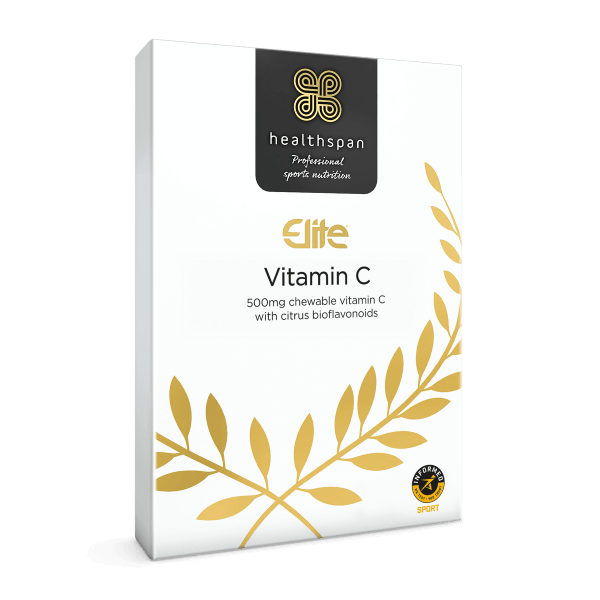Nigel Mitchell, Performance Nutritionist, explains why vitamin C is essential for the immune system and overall physical health of athletes.
The idea of optimum nutrition is to ensure that individuals have all the nutrients they require to support their health and athletic goals.
Go nutrients and Glow nutrients
We can divide our nutritional requirements into macronutrients and micronutrients. Macro are proteins, fats and carbohydrates, and I consider these to be 'Go' nutrients.
Micronutrients include things like vitamins and minerals: the 'Glow' nutrients. These are all essential for life itself as well as performance.
Vitamin C (also known as ascorbic acid or ascorbate) is probably the best-known vitamin. It was first discovered in 1912, and by 1933 it was being produced as a vitamin supplement.
Like the B vitamins, vitamin C is water-soluble, which means that the body does not store it, so it needs to be consumed regularly. If a diet is insufficient in vitamin C, scurvy can develop in a matter of weeks.
Why is vitamin C important for athletes?
As with most vitamins, vitamin C has many physiological actions on systems that underpin training and performance.
Even though taking high doses of vitamin C will not directly improve athletic performance, not having a sufficient intake will undermine recovery, immunity and performance.
Vitamin C is an antioxidant, so helps to reduce cell damage caused by the free radicals produced in metabolism and exercise.
It is also involved in collagen formation, which is important for the connective tissues in our joints; supports the immune system; and there is some evidence to show it may help reduce the symptoms of the common cold.
With all this in mind, it's no wonder that vitamin C supplementation is so common among athletes.

Elite Vitamin C 500mg
500mg chewable vitamin C with citrus bioflavonoids
- High dose of 'stomach-friendly' vitamin C
- 16mg mixed citrus Bioflavonoids
- Delicious chewable tablets
Vitamin C also helps iron absorption. We all know the importance of iron for athletes, not least the fact that it is crucial for the formation of haemoglobin. Often people eat enough iron, but struggle to absorb the mineral. Co-ingesting vitamin C can increase the bioavailability of the iron (how much is absorbed) and boost stores.
Supplements like Healthspan Elite Iron Complex combine iron with other essential complementary minerals and 80mg of vitamin C. This is one of the products I recommend when athletes go to altitude camps.
The fact that vitamin C is involved in collagen synthesis clearly underlines the importance for athletes. Collagen is a structural protein that supports skin and connective tissue such as tendons and ligaments.
Vitamin C is used alongside the collagen in products such as Elite Collagen Repair. These products have become part of the cornerstone support for athletes recovering from soft tissue and bone injury. From my experience, such supplements really seem to increase the recovery time of the injured athlete.
How much vitamin C does an athlete need?
There is little evidence that athletes need to take mega-doses of vitamin C, and about 90mg a day is the standard recommended amount. This will be provided by a large orange. The safe upper limit of vitamin C intake is 2,000mg/day; any more than this may cause some gastrointestinal issues.
For many athletes, taking a vitamin C supplement or a multivitamin with vitamin C helps to provide reassurance that they will not under-consume, and will be particularly useful in situations where they may struggle to consume quality nutrition, such as when travelling or at competitions.
Food sources of vitamin C
Foods high in vitamin C are mainly plant-based, such as citrus fruit, kiwi, broccoli, berries, and potatoes (with the skin on). Eating fruit and vegetables helps to ensure you are getting your vitamin C, but if this intake is compromised, consider one of the Healthspan Elite supplements, which are all certified as safe for competing athletes under the Informed Sport program.








